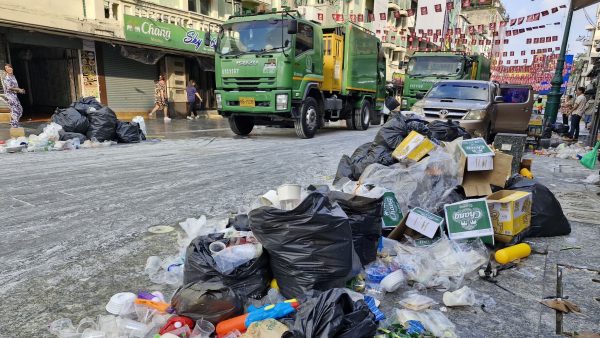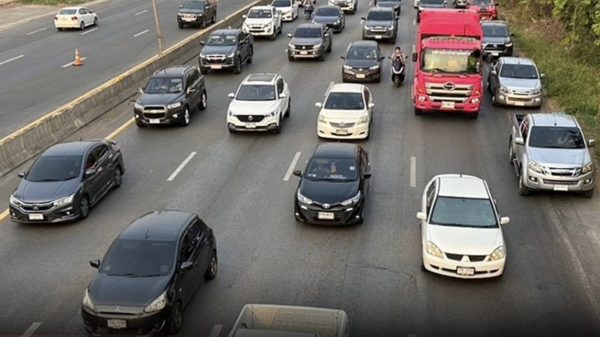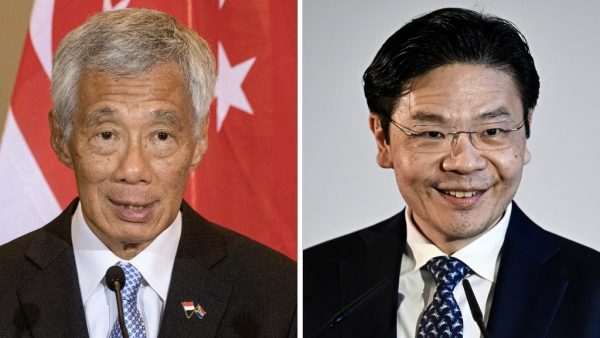ASEAN environmental issues worsened since 2009 – civil groups

In an exclusive interview with Thai PBS World, Premrudee Daoroung, founder and coordinator of the Project SEVANA South-East Asia, a platform that brings together local and regional activists from various backgrounds in Southeast Asia, said that the attention of ASEAN governments on environmental issues facing the region is worsening.
She said that ASEAN civil society organisations (CSOs), based in Southeast Asia, proposed in 2009 an “ASEAN-Civil Society Dialogue on Environment” as a framework to communicate “openly in public” with ASEAN governments, asking that it launch a fourth Strategic Pillar on the Environment and prepare a blueprint that commits member states to placing international best practices on environmental sustainability at the center of decision-making.

The proposed dialogue also includes the setting of three key thematic issues, namely large-scale projects, climate change and biodiversity “but we haven’t seen any improvement in the past decade and the situation is worsening now,” she said.
Ms. Premrudee said the civic group hopes ASEAN will be progressive enough to review their Strategic Pillars to include the environment to demonstrate that they understand the importance of the related issues, which are the basis of all the 17 Sustainable Development Goals that ASEAN wish to attain.
“We flag this idea in order to stress that ASEAN needs to look at the environment in a new way because it goes deeper than what they are doing now. It involves listening more to the voices of the people on the ground, not only to the states and businesses as it is now.” she said.
Project SEVANA South-East Asia co-hosted the public forum entitled “Environment and Livelihood Impacts of ASEAN Economic Integration: The peoples’ stories” and a photo exhibition at Chulalongkorn University today (June 19th) as part of the Mekong ASEAN Environmental Week.
Participants are from civil organisations from ASEAN countries, such as The Mekong Butterfly (Thailand), Mekong Watch(Ja+pan-Laos PDR), Karen Rivers Watch (Myanmar), International Rivers (U.S.-Thailand), Land Watch Thai, Focus on Global South (Philippines), Sustainable Agriculture Network, Climate Watch (Thailand) KUASA (environmental Activists Society, Malaysia), Earth Rights International, Mekong Energy and Ecology Network and BioThai.
Meanwhile, Professor Surichai Wankaew, Director of Chulalongkorn University’s Centre for Peace and Conflict Studies, who co-hosted the event, said that the groups would like the voices and the concerns of peoples in the Mekong region and ASEAN to be heard and discussed by the leaders.

He expressed concern that current projects to boost economic development and security, conducted by ASEAN governments, are not well balanced and only add to environmental degradation.
“Sometimes megaprojects are not caring for the communities’ livelihoods and we hope the ASEAN discussion agenda will address the communities’ security as well as energy and economic security.” he said.
The CSOs released a statement entitled “ASEAN We Want” on June 16th, saying that, despite growing evidence that environmental destruction and degradation are the main causes of livelihood insecurity and violation of peoples’ rights in the ASEAN region, there have been no improvements by governments, businesses or corporations in addressing environmental over the past decade.

The statement presents a 14-point list of hopes and demands on the occasion of ASEAN Summit in Bangkok, calling on a common and collective understanding of the need for “A people-centred ASEAN” through sincere respect and the upholding of roles, rights and livelihoods of people by ASEAN governments and relevant actors, especially businesses and corporations.
The 14 points of hopes and demands are:
- Recognition of the value of nature as the basis of life and foundation for sustainable development
- Understanding and upholding of the needs and interests of a majority of the population
- Economic development that is not destructive to the environment and livelihoods
- Equitable access to resources, especially food, land, water and energy
- Recognition and respect for the roles and importance of local communities in protecting eco-systems and natural wealth
- Protection of ethnic and gender diversity
- Recognition and support for peoples’ visions and practices of food sovereignty, agroecology and environmental stewardship
- Priority given to the needs and aspirations of local communities over businesses
- Protection of investments by local peoples
- Upholding of individual and collective human rights
- No evictions, displacement, dispossession and resettlement of local populations
- Protection of peoples and environment by the rule of law
- Removal of investor protection provisions from investment laws and agreements
- Adoption of a low carbon and non-extractivist development by all countries






